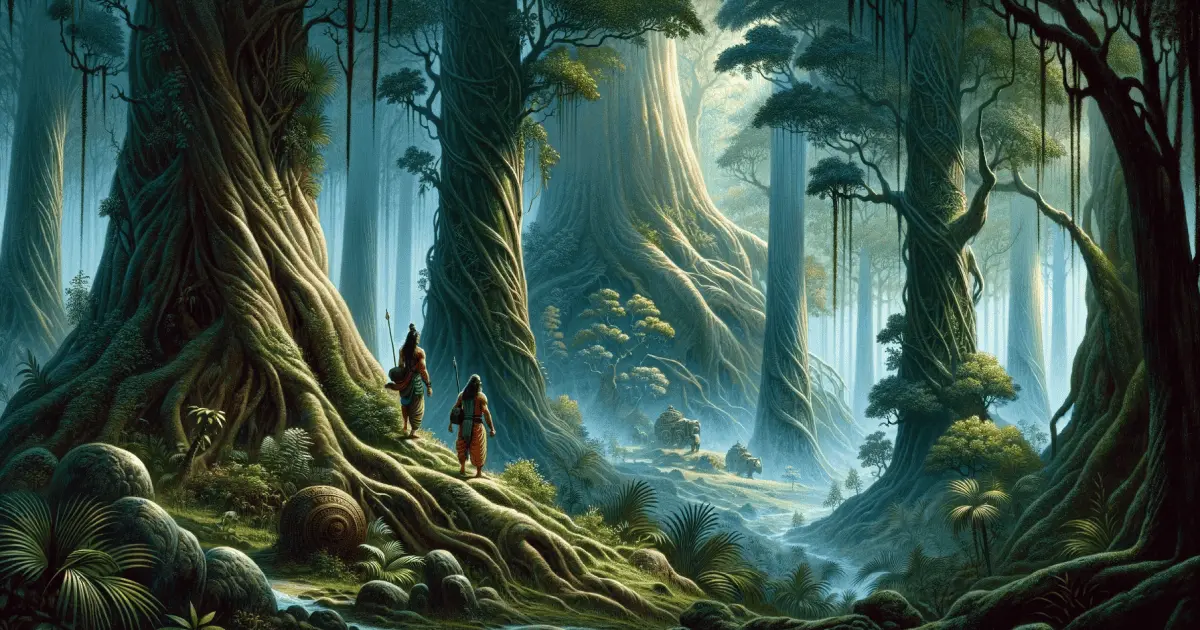Year 916 of the Seventh ManvantaraFifteen days into the forest, the exiled Bharata prince discovered a city. He had never heard its name, and came upon it only by chance. He had to stay here a while- he had to learn more about these Kurus and their city, Kurukshetra. The Kurus painted their faces in the fashion of the old tribes- the first Suryavanshi, Somavanshi and their precursors. Dark reds and bright yellows were smeared in intimidating, angry angles that accented the eyebrows and chin. The left cheek was reserved for insignia that represented some sort of hierarchy, the Bharata prince guessed. The Kuru sentries that caught him had all painted the same design on their cheeks, but the men they transferred him to sported larger and more intricate artworks. Inside the Kuru king’s attendance hall, the Bharata prince saw altogether a different design; and the only Kuru king’s was unique.He had been treated cordially so far- a display of civility that would have been absent in Kanyakubja or Kaushambhi. Within hours of being within Kurukshetra, he correctly surmised that he was not among savages. There was neither the characteristic stench of flesh, liquor and blood nor...
Of the Kurus, a Short Story
You make a grave mistake, Bharata King. At least we are from this land, our blood has been birthed and cremated here. Who are the Kuru? Where have they come from? They are not Arya, and they never have been Arya. One day your line will be gone and they will be the Pretender Kings in the name of your forefathers.

Sign up to read this story
This story is part of our member-only exclusive access.
Upgrade to get full access to this short story and other membership benefits